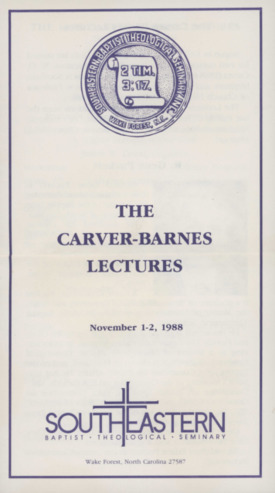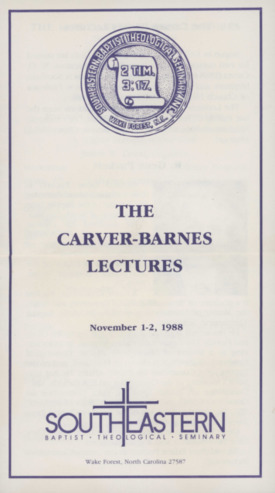Search Constraints
« Previous |
1 - 10 of 3,789
|
Next »
Search Results
Select an image to start the slideshow

SEBTS Chapel - John Keating Wiles January 25, 1989
1 of 10

SEBTS Chapel - Samuel Eugene Balentine January 26, 1989
2 of 10

SEBTS Chapel - Leonard Farrar January 19, 1989
3 of 10

SEBTS Convocation - Edwin Luther Copeland January 17, 1989
4 of 10

SEBTS Commencement - C. Michael Hawn December 10, 1988
5 of 10

SEBTS Chapel - G. Thomas Halbrooks and James W. Good November 23, 1988
6 of 10

SEBTS Missionary Day Address - Les and Hazel Watson November 22, 1988
7 of 10

SEBTS Carver-Barnes Lecture - Richard Gene Puckett November 2, 1988
8 of 10

SEBTS Carver-Barnes Lecture - Richard Gene Puckett November 1, 1988
9 of 10

SEBTS Faculty Lecture - Fred Allen Grissom November 17, 1988
10 of 10

